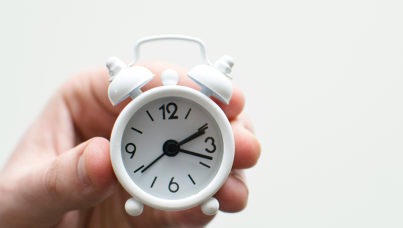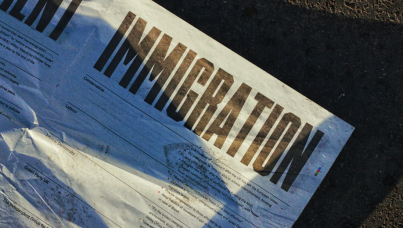No Royal Rollercoaster
If you take your view of British public opinion from the impressions reflected in the media, this has been something of a roller-coaster few months for the standing of the Monarchy and Royal Family. There has been, for a long time, a wide-spread mythology in media circles of growing public disenchantment with the Royal Family, and a belief that this was weakening support for the Monarchy. Not so.
At the start of this year, there was an almost-universal assumption that the Golden Jubilee would be an embarrassing flop, and that a large parts of the public were likely to resent the attention paid to it, perhaps even being hostile to the whole idea. An e-mail to BBC staff was reported in the press at the end of January as instructing that coverage of the jubilee "should be more critical because many people no longer support the monarchy".
Then, suddenly, we have seen the other side of the coin. Buckingham Palace's handling of the arrangements after the death of the Queen Mother was widely praised. The crowds who queued for her lying-in-state, or to see the funeral cortege, seem to have convinced much of the media that they have entirely misjudged the public mood, and that the monarchy is, if anything, more popular than ever. Some of the most staunchly republican commentators in the press attended Jubilee receptions for the media, and returned to write columns that, if not actually recanting their views, were generally sympathetic, in some cases startlingly so.
Has a decline in the popularity of the monarchy really been suddenly arrested? No, almost certainly not, because it seems clear that the decline was a mirage in the first place. MORI's objective measurement of public opinion, through regular surveys of representative samples using consistent questions, suggests there has been no real movement at all. A recent measurement of support for the Monarchy found no diminution of support from previous years. The MORI Telephone Surveys poll, conducted at the start of the week in which the Queen completed fifty years on the throne, found only one in five, 19%, said that they would favour Britain becoming a republic; 71% preferred that it remain a monarchy.
Compare these figures with earlier surveys. In 1993, when MORI first asked this question, the figures were 69% for the Monarchy and 18% for a republic, effectively no different from those today, and the polls in between have found hardly even as much fluctuation as we would expect from normal sampling error. The figures have been remarkably stable over the years; indeed, they have remained almost entirely static for more than thirty years, ever since a 1969 Gallup poll found 18% favouring a republic. Support for the Monarchy is probably the most stable trend we have ever measured at MORI in the third of a century we have been polling; every poll MORI has published has found support for the Monarchy at 72% plus-or-minus 3%, and for a republic at 18% plus-or-minus 3%.
There is no real mystery to why these figures are so stable. We can classify the positions that people hold on various issues, and which we can measure through opinion polls, into "opinions", "attitudes" and "values". Sir Robert Worcester has defined them as "opinions: the ripples on the surface of the public's consciousness, shallow, and easily changed; attitudes: the currents below the surface, deeper and stronger; and values: the deep tides of public mood, slow to change, but powerful". Opinions are reactions to little-thought-about questions, often superficial, easily manipulated by context or question wording. Attitudes are more strongly held, perhaps based on serious consideration of the subject and sufficient knowledge of the relevant facts to come to a judgment, but ultimately still susceptible to argument and subject to change. Values are much deeper-seated than this and are not easily, if at all, changed; they are often, once formed, held for life.
Of course, different people's responses to various questions may fall differently among these categories, but it is clear that for a substantial proportion of the public, support for the monarchy or preference for a republic is a value rather than an attitude or an opinion, and will not be swung by the day-to-day vicissitudes of the Royal Family's existence. Even in the aftermath of the death of Diana, Princess of Wales, when the popular impression is that the standing of the monarchy dropped like a stone, there was no perceptible movement in this key trend.
There are some differences in attitudes with age, and it is true that there are fewer young enthusiasts for the Monarchy than old; in fact there is a steady increase in support for the monarchy as people get older, but even among 16-24 year olds the Queen has a two-to-one majority in her favour. Opponents of the monarchy like to suggest that support for the Monarchy will inevitably fall as the strongly pro-monarchy older generations die out, and these less enthusiastic youngsters take their place. But in fact the young have probably always been more sceptical of the monarchy, just as they tend to be less deferential to every other part of the status quo.
Certainly our polls on the monarchy have always found the same pattern, with no sign of building support for a republic as cohorts of die-hard anti-monarchists move up through the age brackets. Also - and again consistently with their attitudes to many other issues of public affairs - the young are much more likely to be "don't knows" than the older generations. The evidence seems to be that, as people grow older, more are likely to be monarchists, rather than holding the same views throughout life.
Curiously, it is among the more naturally conservative middle class that greatest support for a republic is to be found: 24% of class AB (professionals and managers) would prefer a republic, but only 18% of C1s (lower middle class) and 17% of C2DEs (working class); abolition of the monarchy is much more a demand of liberal intellectuals (well represented in the media, of course) than of the traditional working class left. But republicans are much more likely to be Labour supporters or Liberal Democrats than Conservatives: 87% of Tories favour retaining the monarchy and only 9% would opt for a republic, while for Labour and the Lib Dems the figures are 67% to 22% and 79% to 16% respectively.
Some of the impression of movement in public attitudes over the last few months has been given by the misleading reporting of, or comparison with, other polls. An NOP poll for the Independent in April, just after the death of the Queen Mother, was headlined "Poll reveals big rise in support for monarchy" (9 April 2002); the report suggested that support for abolishing the monarchy had fallen from 34% to 12% in the course of a year. But closer inspection revealed that the comparison was with surveys which used entirely different questions. NOP had asked "Do you think the Monarchy should be left as it is now, radically reformed or abolished altogether?"; 12% had opted for abolition, 30% for radical reform and 54% for the status quo. Would we expect to have found the same 12% figure if we had questioned that sample but using the MORI question?
Almost certainly not. We would expect that offering a third, "radical reform" option would reduce the number plumping for a republic: at least some of the monarchy's opponents dislike it in practice rather than principle, and it is precisely because they see no prospect of radical reform that they wish to abolish it. In fact Gallup asked the same sort of question back in 1992 (the "annus horribilis") and got strikingly similar results: "Q. In your view, should the monarchy remain as it is, be modernised or be abolished?" - remain as it is 51%, modernised 31%, abolished 13%.
But in any case it was not the MORI question with which the NOP findings were being compared. The earlier survey with which the Independent compared it had been by ICM for the Guardian in April 2001, and used ICM's established trend question "Do you think Britain would be better off or worse off without a Royal Family?" A third, 34%, thought Britain would be better off, and 51% worse off, while 16% didn't know.
Again, it is possible to calibrate responses to ICM's question against a long-running MORI trend: MORI has on numerous occasions asked a "better off/worse off" question, except that the MORI question refers to the monarchy rather than the Royal Family, and also offers a third, "make no difference" response. Presumably for a combination of these two reasons, ICM's question has persistently produced higher percentages saying the country would be "better off" for a change than has our question. Back in 1987, for example, 5% told MORI that Britain would be better off without the monarchy while ICM found 13% thought Britain would better off without the Royal Family. In 1990, the figures were 6% and 20% respectively; in August 1997, just before the death of Diana, 16% and 30%, a fourteen-point difference on both these most recent occasions. (We would not necessarily expect the difference to remain consistent over time, since the gap will reflect changing relative attitudes to the Monarchy and to the Royal Family as a whole.)
Furthermore, comparing the MORI "better off/worse off" question with the MORI monarchy-republic question, we find that the belief that Britain would be "better off" without the monarchy fluctuates much more than support for abolition, but is always as low or lower. This makes perfect sense when we consider support for a republic as being a value rather than an attitude. Naturally, anyone who thinks Britain would be better off without the monarchy is likely to support its abolition, but there may well be people who are abolitionists on principle even if they don't feel it would make any practical difference; hence "better off" rises and falls with events while support for a republic does not.
Pulling all the strands together, it is clear that it is preposterous to draw any conclusions about the trend of opinion by comparing the 2002 NOP poll and the 2001 ICM poll. But the analysis makes the point that, while republic or monarchy may be the key question, there are a good many other dimensions to the issue worthy of separate consideration. In particular, the standing of the Royal Family in general is often much lower than that of the monarchy.
Of course, it is not journalists and their employers who are under the impression that the popularity of the monarchy is in decline: the media coverage reflects a wider misapprehension. Even though there has been no falling-off of popular support for the survival of the monarchy over the last dozen years, over the same period there has been a dramatic fall in public confidence that it will survive. In 1990, 69% of the public thought that Britain would still have a monarchy in fifty years' time, and 49% that it would in a hundred years; by the start of this year the figure had fallen to 39% and 27% respectively - virtually halved. The public now bets two-to-one against the monarchy lasting another hundred years. The crucial period was the start of the 1990s, when the fall was precipitate.
The dichotomy between the two sets of figures partly reflects the way in which media coverage is more comprehensive of negative than of positive stories, but also the selective way in which public opinion is reported. It seems unlikely that quite so many of the public would be pessimistic about the Monarchy's future if they knew how solidly their fellow Britons continue to support the principle. But opponents of the monarchy are more vocal and effective than its supporters. (It is significant that we usually find higher support for a republic among "socio-political activists", the typology that MORI developed to identify opinion leaders in the community, than among the public as a whole.) But there is also a danger that in the long-run such misconceptions may be self-fulfilling; if supporters of the monarchy are convinced that it is doomed, they may fight less hard for it and be less committed in its defence.
All in all, far from being in decline, the monarchy seems to have reached the Jubilee in rude health. Nevertheless, its opponents will doubtless continue to exploit its weaknesses, in the hope that the tide of opinion may be turned and the public's surprising level of pessimism be justified. There is no room for complacency.



